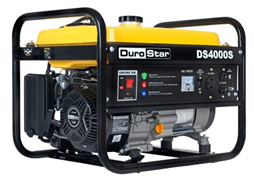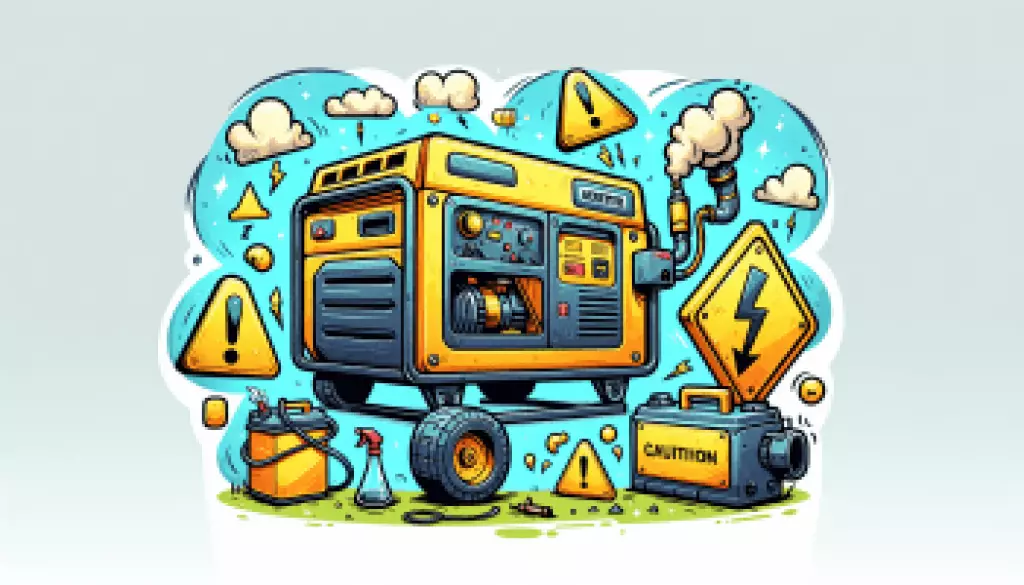What Size Generator Do I Need?
When purchasing a generator, you want to find the ‘goldilocks zone’. You need to have a generator big enough that you have the power to run everything you want safely and without damaging your generator. Still, you don’t want a generator that is bigger than required either as that will hit your bank balance hard. Rather like packing for your summer holidays, it is easy to get it wrong either way and end up with too much that you’ll never need or not have enough to get by. It often takes a few tries to get it right when you are packing for a holiday – you can always tell people who go away a lot because they manage to travel light but still have everything they need. However, when you are a first-time buyer of a generator, the consequences and costs involved in getting the sizing wrong can be worse than just forgetting your speedos. Thankfully, this useful guide will show you how to size a generator so you have the right generator for all your needs without overspending What Size Generator Do You Need? The first question you need to ask yourself is what will your generator be used for and how often is it going to be used. These questions can also be thought of in terms of whether your generator is for home or work use. Residential vs Industrial Generators vary in size, that is the capacity or power output, enormously. Generators for home or residential use start at around 5KW and go up to 50KW of power output. Industrial generators start at 50KW and can go up to a huge 3000KW. So, when thinking about the size of a generator, you need to first decide on the use of the generator, whether it is for industrial or residential use. Process Of Sizing Once you know whether the generator you need is for industrial or home use, you then need to begin to think about what your generator will be powering. List Of Items That Will Be Powered First of all, make a list of everything that your generator will need to provide power for. It is important to include and think of everything. If it’s for home use, be sure to include all essential items required for day-to-day living – water, heat, light and kitchen use, such as fridge/freezer and cooker as well as other essentials such as phone chargers and laptops. Determine Starting Wattage As a rule, electrical equipment, whether it is your electrical appliances at home or your power tools or other electrical equipment at work, will have two wattage numbers of their labelling or manufacturer’s guide (if the label is for whatever reason unavailable). There is a starting wattage, which is a higher number and a running wattage. Your generator MUST be able to manage the starting wattage of all the appliances it is expected to run. Generator Label Checks It is always advisable to buy a generator from a reputable source, such as ourselves at Generator Pro, to be sure that you are getting a safe, well-running generator and also that it is the size you believe you are buying. You can also check the power output of your generator by looking at its labelling. This is essential for knowing how much you can run from it at any one time. Generators should have three types of tags or labels visible: data tags, which will have the output and other engine specifications, caution labels will help you ensure you are running your generator properly and warning/danger labels will help you ensure you are running your generator safely to not endanger yourself or others. What If I Can’t Find The Label? All appliances are different so if you can’t find a label on the product itself, we would always advise googling the model number. If you are unlucky with your search and still can’t find a power rating, here is a rough idea of the power consumption of different products: Appliances: Approximate Starting Wattage Approximate Running Wattage 240V required? Refrigerator or Freezer (Energy Star) 1200 132-192 Microwave Oven 650 watts 1000 1000 800 watts 1300 1300 1000 watts 1500 1500 Incandescent Lights as indicated on bulb (i.e. 60W) as indicated on bulb (i.e. 60W) Furnace Fan, gas or fuel oil 1/8 Horsepower 500 300 Y 1/6 Horsepower 750 500 Y 1/4 Horsepower 1000 600 Y 1/3 Horsepower 1400 700 Y 1/2 Horsepower 2350 875 Y Television Tube type 300 300 Flat Screen (20”) 120 120 Flat Screen (46″) 190 190 Coffee Maker (4 cup) 600 600 Dishwasher (Cool Dry) 540 216 Electric Fry Pan 1500 1500 Electric Range (8-inch element) 2100 2100 Y Automatic Washer 1200 1200 Clothes Dryer (Electric) 6750 5400 Y Radio 50 to 200 50 to 200 Sump Pump 1/3 Horsepower 1300 800 Y 1/2 Horsepower 2150 1050 Y Window Air Conditioner (10,000 BTU) 2200 1500 Computer Laptop 200-250 200-250 Desktop 600-800 600-800 Monitor (LCD style) 30 30 Printer 400-600 400-600 Hot Water Heater 4500 4500 Y Garage Door Opener 1420 720 Approximate Starting Wattage Approximate Running Wattage 240V required? Television Tube type 300 300 Flat Screen 120 120 RV Air Conditioner 11000 BTU 1600 1010 13500 BTU 2800 1800 15000 BTU 3300 2000 RV Refrigerator 600 180 Blender 850 400 Electric Grill (tabletop) 1650 1650 Slow Cooker 170-270 170-270 Hair Dryer (1600 watts) 1900 1800 Microwave Oven (650 watts) 1000 1000 Coffee Maker 600 600 Radiant Heater 1300 1300 Laptop computer 200-250 200-250 Satelite Receiver 250 250 Radio 50 to 200 50 to 200 Two-Way Radio 12A 360W 360W 23A 840W 840W 35A 960W 960W Fan (portable) 120 40 DVD Player 350 350 Power Tools: Approximate Starting Wattage Approximate Running Wattage Air Compressor 1/2 hp 1600 975 1 hp 4500 1600 Bench Grinder (8 in.) 2500 1400 Circular Saw (Heavy Duty, 7 1/4 in.) 2300 1400 Concrete Vibrator 1/2 hp 840 (avg.) 840 (avg.) 1 hp 1080 (avg.) 1080 (avg.) 2 hp 1560 (avg.) 1560 (avg.) 3 hp 2400 (avg.) 2400 (avg.) Demolition hammer 1260 (avg.) 1260 (avg.) Drain cleaner 250 (avg.) 250 (avg.) Drills 3/8 inch, 4 amps 600 440 1/2 inch, 5.4 amps 900 600 Electric Chain Saw (14 inches, 2 hp) 1100 1100 Hand Drill (1/2 in.) 900 600 High-pressure Washer (1 hp) 3600 1200 Rotary hammer 1200 (avg.) 1200 (avg.) Table Saw (10 in.) 4500 1800 Industrial Motors Split Phase 1/8 Horsepower 1200 275 1/4 Horsepower 1700 400 1/3 Horsepower 1950 450 1/2 Horsepower 2600 600 Capacitor Start Induction Run 1/8 Horsepower 850 275 1/4 Horsepower 1050 400 1/3 Horsepower 1350 450 1/2 Horsepower 1800 600 3/4 Horsepower 2600 850 1 Horsepower 3000 1000 1 1/2 Horsepower 4200 1600 2 Horsepower 5100 2000 3 Horsepower 6800 3000 4 Horsepower 9800 4800 Capacitor Start Capacitor Run 1/8 Horsepower 600 275 1/4 Horsepower 850 400 1/3 Horsepower 975 450 1/2Horsepower 1300 600 3/4 Horsepower 1900 850 1 Horsepower 2300 1000 1 1/2 Horsepower 3200 1600 2 Horsepower 3900 2000 3 Horsepower 5200 3000 4 Horsepower 7500 4800 Fan Duty 1/4 Horsepower 1200 650 Miscellaneous: Approximate Starting Wattage Approximate Running Wattage Electric Fence, 25 miles 250 250 Milk Cooler 1800 1100 Milker (vacuum pump, 2hp) 2300 1000 Portable Heater (kerosene, diesel fuel) 50,000 BTU 600 400 90,000 BTU 725 500 150,000 BTU 1000 625 Battery Charger 15 amp 380 380 60 amp with 250-amp boost 1500/5750 1500/5750 Total Power Requirements The time your generator is going to be used for will also affect the total power requirement that you need. As a general rule, to keep your generator running efficiently for years to come, you don’t want to be running it at its maximum capacity for more than half an hour. Therefore, you need to work out how long your generator is going to be put to work. If it is going to be for short bursts of time, i.e. for power tools that will be used sporadically or for charging and brief use while camping, then running at maximum capacity shouldn’t be too much of a problem. If it is to power your house in the case of a power outage that could last a day or more, or any other circumstance where it needs to be running for long periods, you need to allow for a 20-30% margin of excess capacity. Consult Our Experts Generators are not a short-lived purchase. You want to be sure that when you make this investment that you are making the right choice. At Generator Pro, we are always happy to help you make the right choice for your needs using our in-house expertise and experience. Whether you are replacing a generator or buying one for the first time, we can help. If you are a generator newbie, try our first-time buyer’s tool to get you started. We are genuinely passionate about two things: generators (of course) and saving YOU money. So, why would you go anywhere else!
Visit the Generator-Pro website for more information on What Size Generator Do I Need?






